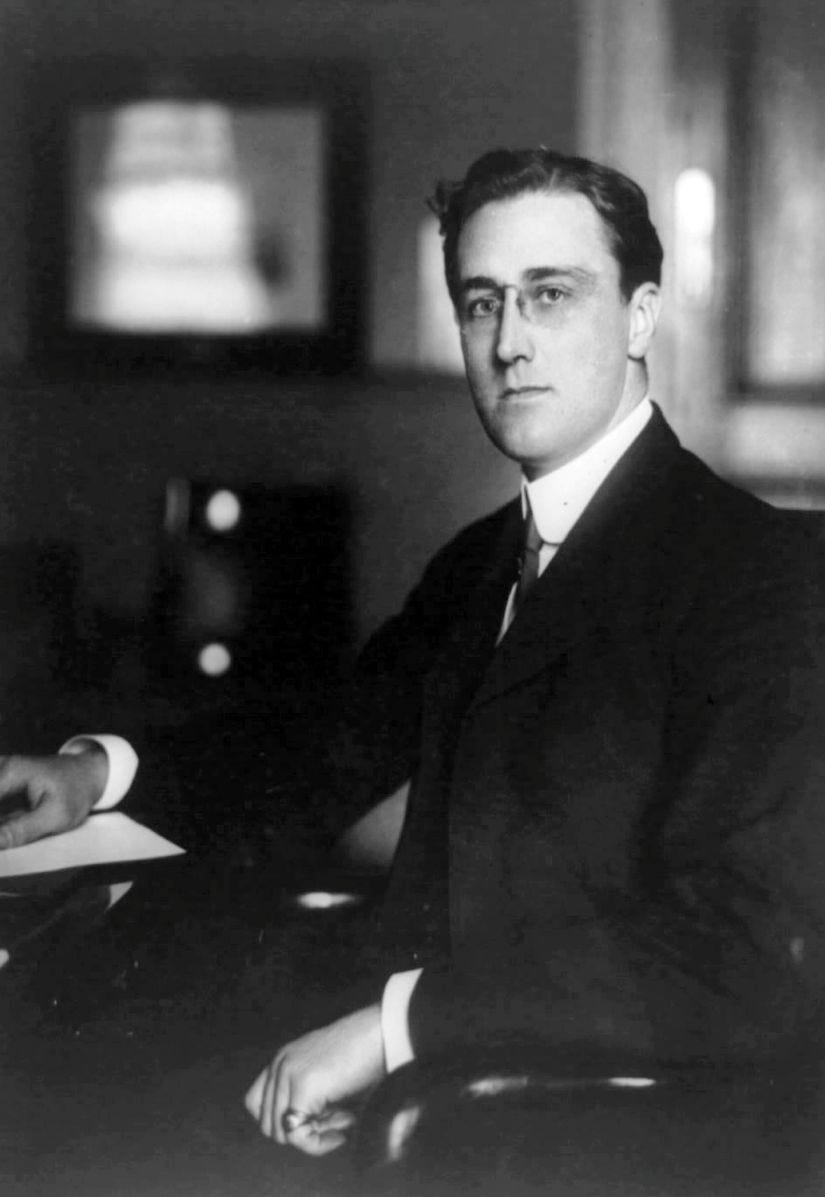Deterrence is Crumbling in Asia
Vermilion Tower - Thoughts of the Week
This past week, the CCP sent a large number of PLA aircraft and warships to operate near Taiwan. It should be clear that this behavior will continue unabated until Beijing suffers consequences. Too many of the CCP’s operations continue to be directly unopposed.
What has Washington and the administration done in response? Continued to drag its feet on weapons deliveries to Taiwan, maintain the outdated stance of strategic ambiguity, and since 2019 consistently downplay the threat emanating from Beijing. Due to the moribund character of this decade-late re-pivot to the Pacific, there are almost certainly analysts in Beijing observing these data and assessing that when push comes to shove, the United States is signaling it will not fight over Taiwan. Deterrence is crumbling in Asia much the same way it did in Eastern Europe over the past twenty years. Not so much as a conscious decision on the part of Washington, but as a result of fuzzy thinking and a lack of strong rudder steer from clear-minded presidential and congressional leadership.
When questioned in public, President Biden (to his credit) has emphatically stated at least three times that his decision as Commander-in-Chief would be to directly come to Taiwan’s defense. While Vermilion agrees with this position, US force posture has not significantly increased either within the First Island Chain or on Taiwan specifically. The United States’ words do not match its actions.
In fact, just the opposite is the case, as DoD has announced plans to cut back both ground forces as well as air forces in Okinawa, a recruiting crisis is thinning out the ranks, and:
It is hard to believe that a force posture sufficient for the 1990’s, perhaps the most benign international environment since the founding, is sufficient to meet the demands of facing down China, arguably the largest economic and military threat in American history.
Much of this friction is the result of Americans not speaking the same security language as Europe and Asia. Americans as well as their elected leaders are often too naive to understand hardball European and Asian politics. Across the Atlantic and Pacific, ruthless realism has a permanent home. Populations like the Poles, Russians, Balts, Chinese, Japanese, and others have the historical legacy and modern problem of living next to their worst enemies. The American national security outlook would be far different if Washington and Beijing were separated by only about 100 miles (the distance between Seoul and Pyongyang).
This frustrates and confuses American allies and partners to no end. The modern US maintains the largest margin of power over the entire international system of any state in history bar the ‘90s era US. Russia’s recent bid to remake the international system has turned into a life or death struggle against a local military which Moscow is simply trying to white knuckle through to a pyrrhic victory. The PRC’s capabilities are as of yet untested. At the opening of this new Cold War era, it is dangerous to pull forces back from frontiers, not drive for a rapid win and resolution to the Ukraine conflict, and not make generational investments in the armed forces.
As far as American leadership, it is axiomatic to state that Washington’s greatest foreign policy leaders tend to have had extensive foreign policy experience as professionals. Washington himself, Franklin, Hamilton, Jackson, Theodore Roosevelt, FDR, Truman, Eisenhower, Marshall, Kennan, Nixon, Kissinger, H W Bush, Scowcroft, and Powell all had world-class foreign policy credentials.
FDR as Assistant Secretary of the Navy. He served for seven years during American involvement in WWI (1913-1918). He had a passion for the Department of the Navy, was well-read on the subject, and was an ardent supporter of a large, efficient naval force.
There is a clear connection between American leaders with limited foreign policy experience and those leaders’ struggle with envisioning and achieving significant foreign policy success. Wilson, both Clintons, Obama, Trump, and Biden had zero experience before taking office. LBJ had one highly questionable politically-directed temporary deployment in WWII, and Carter and W Bush both had limited peacetime military service (nuclear submarines and air national guard respectively). None of these presidents had or have a particularly admirable or successful foreign policy.
Notes to the Vermilion Community:
This type of article is new for us and is written in a short format casual style. It is meant to project some of our daily thoughts out to our audience, may not have conclusions, or be as thoroughly researched as our standard full-length articles. We will test doing a “thoughts of the week” post a few times a month. On these posts we will allow comments for more interaction.
The “thoughts of the week” series is called Vermilion Tower as an allusion to 水浒传 (Water Margin, also called Bandits of the Marsh and All men are Brothers). Water Margin is one of the four classic novels at the roots of Chinese culture. In the prelude/introduction, there is a locked red (vermilion) tower within a monastery said to be holding demons inside. An imperial official foolishly orders the tower unlocked, unleashing 108 demons and spirits which are reborn as people. These 108 people go on to lead a revolt against the Song Dynasty. Key figures throughout Chinese history have been avid readers of Water Margin, including Mao Zedong. The exile of Wang Jin, the precipitating event of the entire Water Margin novel, has Wang flee to Yanan, the same region Mao occupied at the end of the CCP’s long march (while Mao was in revolt against the government of China). Life imitates art.
What Vermilion is Working On:
Article on the USMC Good, Bad, and Ugly
Article on Rules of Engagement
Selecting topics for IG posts - Blockade Ops, HACABs & PLANMC Brigades
Working on PLA weaponry playing cards (Expect Jan-Feb 2024)
Syllabus construction for our Campaign of Learning


